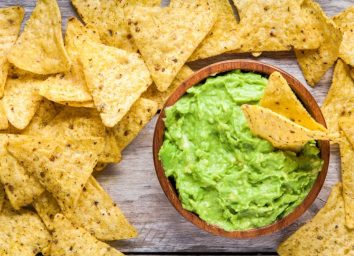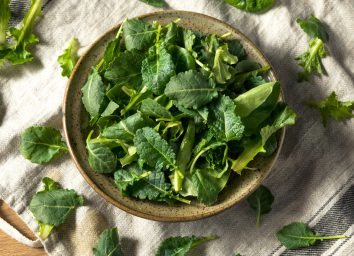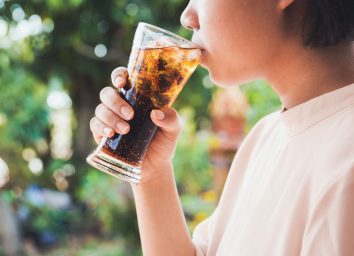22 Foods That May Affect Your Breast Cancer Risk
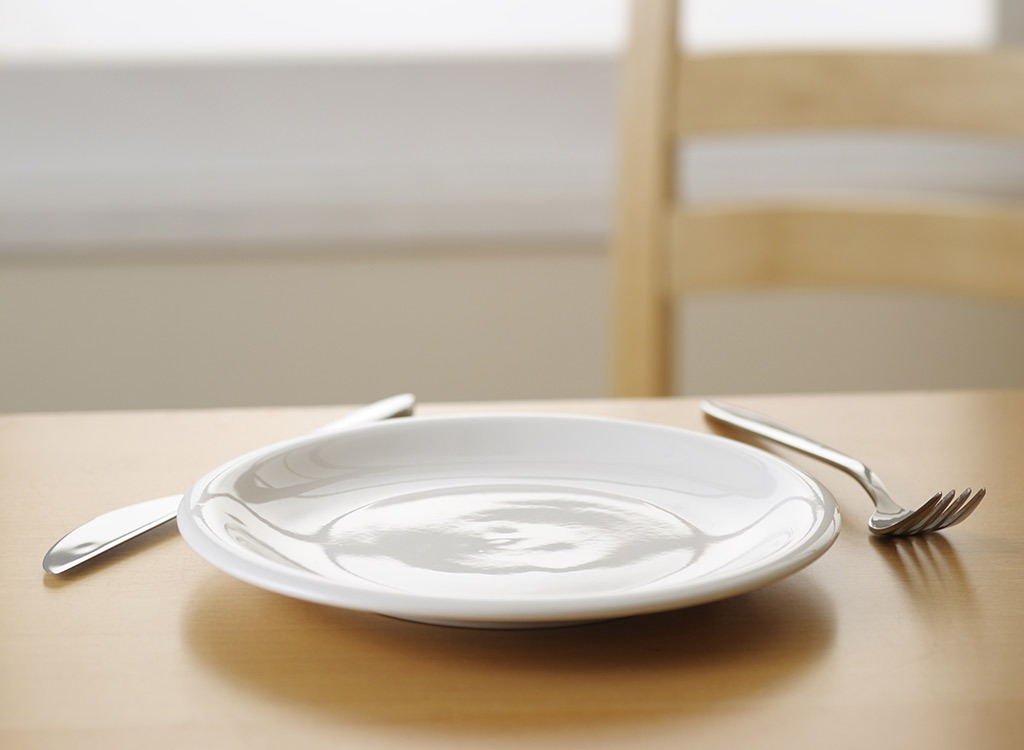
Sure, we all have our differences—like, I will never understand why my best friend finds dipping carrots into ketchup appealing—but there is one thing that many of us have in common: we know someone whose life has been affected by breast cancer.
Next to heart disease, cancer is the second highest killer of American women. Breast cancer, specifically, is the most common, and researchers estimate that one out of eight women will be diagnosed with breast cancer at some point in her life.
Although many risk factors for breast cancer are out of your control—such as genetic factors like having the BRCA1 or 2 gene—there is evidence that a healthy lifestyle that includes exercise and a nutrient-dense diet may affect your risk of accumulating cancer.
While no single food is guaranteed to keep you cancer-free, research has shown that a balanced diet and cancer prevention go hand in hand. In fact, experts have even estimated that we may be able to prevent as many as 9 out of every 100 cancer cases simply by changing what we eat, according to Cancer Research UK, a cancer research and awareness charity. That's why we've found which foods are nutritional standouts when it comes to fighting breast cancer risk and a few you should avoid to keep your boobs cancer-free. Breast cancer isn't the only ailment that affects women disproportionately. Find out which other foods are great for girls with these 50 Healthiest Foods For Women!
Mushrooms
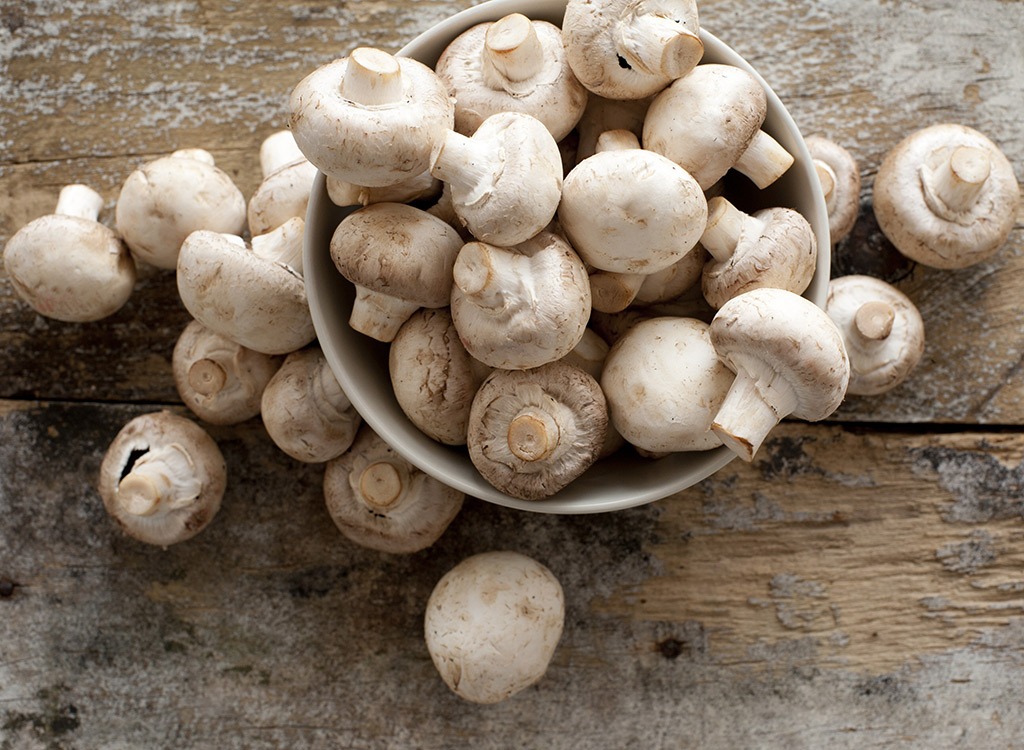
Eating a serving of fungi a day might help protect you from breast cancer, according to a study printed in the International Journal of Cancer. The study, which involved more than 2,000 Chinese women, found that participants who consumed 10 grams (which is equal to a single, small 'shroom!) or more of fresh mushrooms every day were about two-thirds less likely to develop breast cancer than non-mushroom eaters. The study didn't nail a cause-and-effect relationship between mushrooms and breast health, but you'll still be doing your body a favor whenever you add immune-boosting vitamin-D-rich mushrooms to a meal!
Fiber-Rich Beans
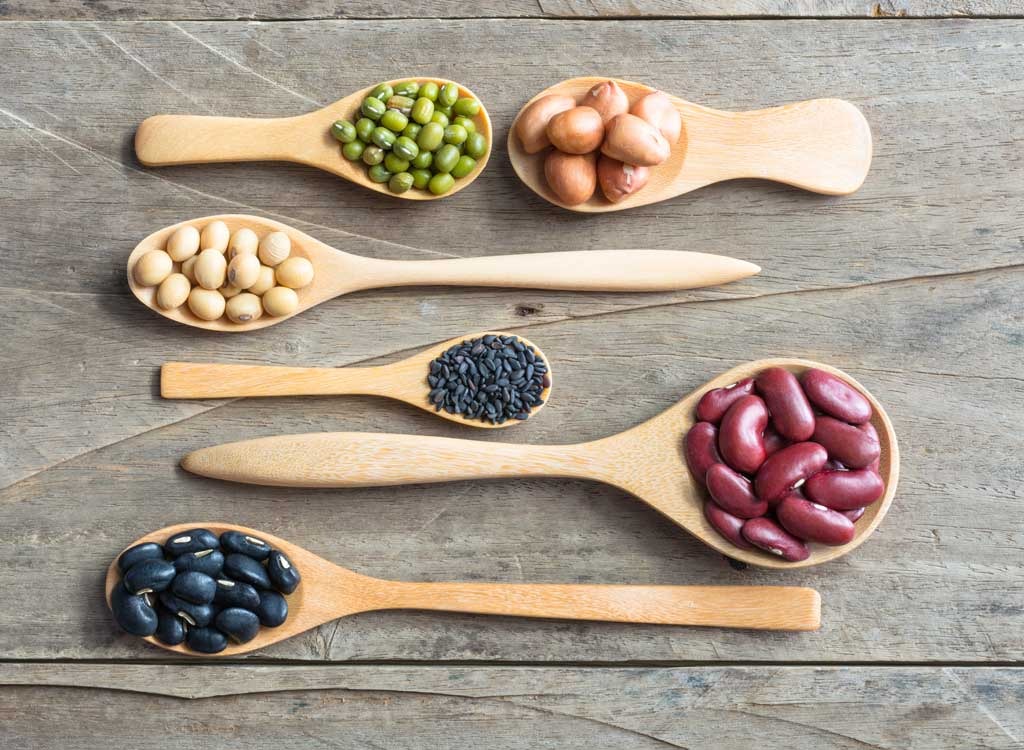
We've been telling you all about how high fiber foods can help with weight loss by prolonging feelings of fullness, but did you know they may also help you reduce your risk of breast cancer? According to Harvard researchers, for every 10 grams of fiber consumed daily, a woman's breast cancer risk decreases by a whopping 7 percent! The authors speculate the fiber helps to reduce high estrogen levels in the blood, which are strongly linked with breast cancer development. And do you know what the number one high-fiber food is? You guessed it, beans! Navy beans pack a solid 9.6 grams of fiber per half a cup—that's more than what you'll find in four slices of Pepperidge Farm Oatmeal Bread! Find out the 20 Best and Worst Store-Bought Breads before your next grocery store trip.
Walnuts
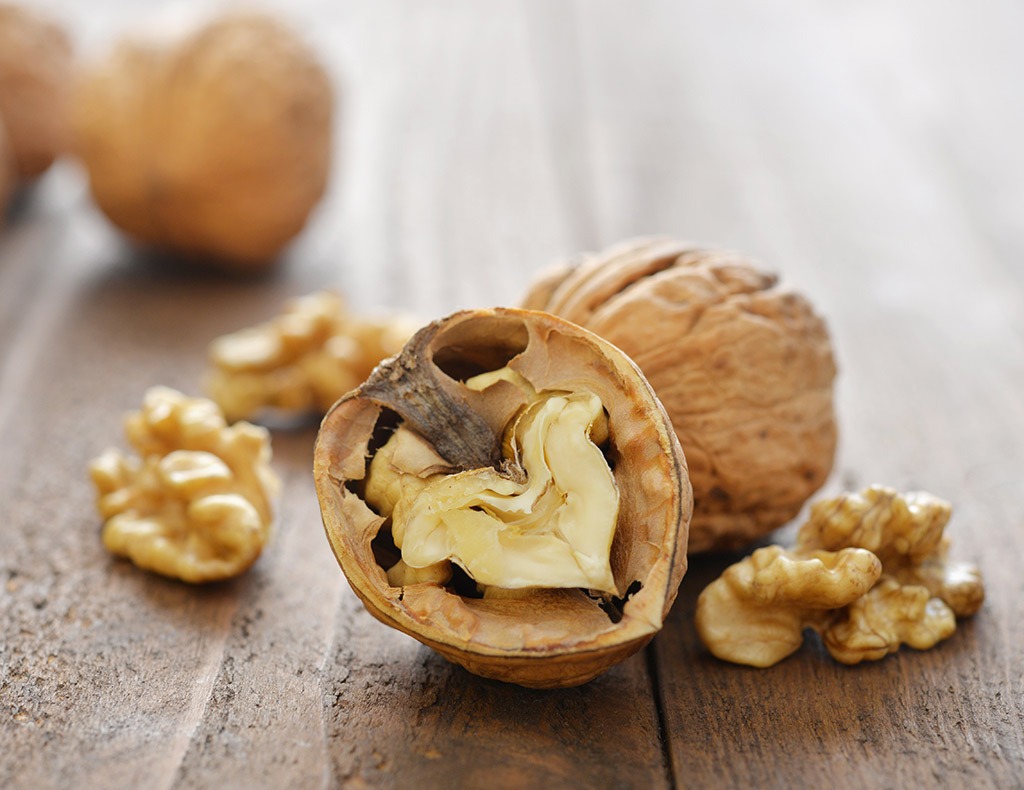
No one will ever call you nutty for snacking on some walnuts. That's because these heart-shaped nuts contain a vitamin called gamma tocopherol that stops the activation of Akt—an enzyme that is essential for cancer cell survival—without harming healthy cells. The nut also contains cholesterol-like molecules called phytosterols that can help regulate estrogen levels in men and women and even slow the growth of breast cancer cells by blocking estrogen receptors. Animal research published in the journal Nutrition and Cancer found that when mice were given the human equivalent of two ounces of walnuts every day for a month, the growth rate of tumors in the walnut-eating mice was half that of the animals who weren't able to crunch on the nuts.
Cooked Tomatoes
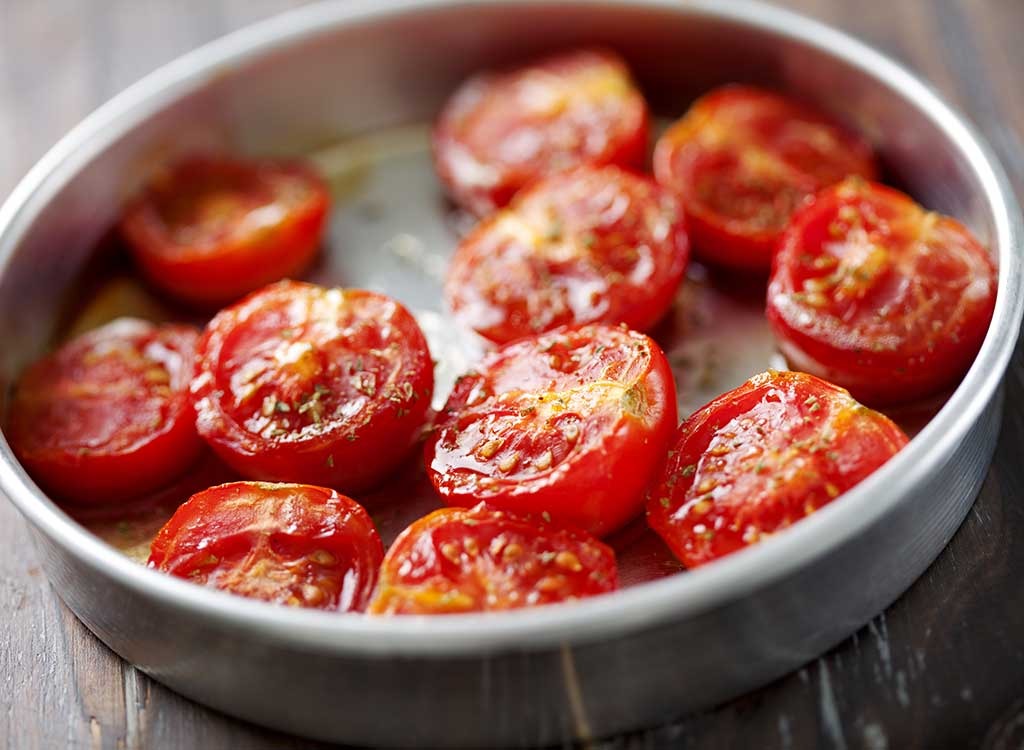
They should be a staple in your pantry for one more reason besides the fact they make a great pasta sauce: cooked tomatoes may help reduce women's risk of developing breast cancer! Recent findings, reported in the Journal of the National Cancer Institute in 2012, found that the antioxidant carotenoid, lycopene, was particularly effective at helping women with the harder-to-treat version of breast cancer: estrogen receptor (ER)–negative tumors. Breast cancer risk was 19 percent lower in women with the highest levels of total carotenoids compared with women having the lowest levels and women with the highest levels of lycopene had a 22 percent decreased breast cancer risk.
Sweet Potatoes

Like tomatoes, orange-colored veggies are a top source of carotenoids. Sweet potatoes, specifically, are rich in a specific carotenoid known as beta-carotene. The same Journal of the National Cancer Institute study found that women with the highest levels of beta-carotene in their blood that a 17 percent lower risk of developing certain types of breast cancer. The theory is that carotenoids contain compounds that help regulate cell growth, defense, and repair. Don't stop with sweet potatoes; also check out carrots, squash, and dark leafy greens.
Pomegranates
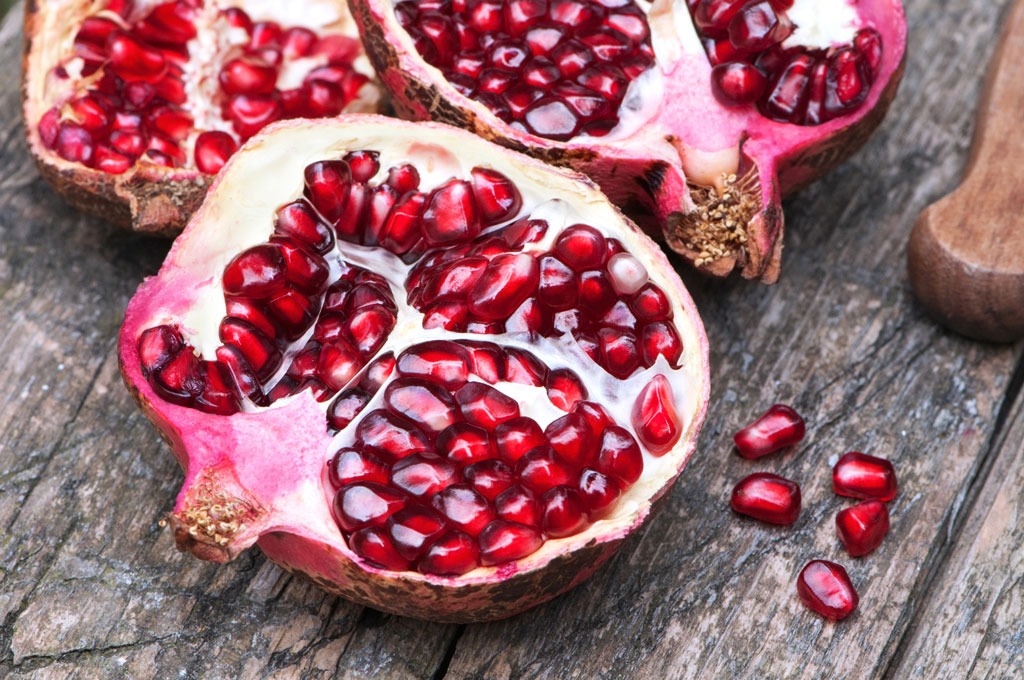
Sure it's the number-two food when it comes to fruit sugar, but eating these fiber-rich seeds can help your body inhibit the growth of hormone-dependent breast cancer. According to a study published in Cancer Prevention Research, the ellagic acid in pomegranates might help protect against breast cancer by suppressing estrogen production and preventing the growth of cancer cells. Not interested in staining your favorite shirt every time you open the fruit? You can also help yourself to raspberries, strawberries, cranberries, walnuts, and pecans—they're rich in ellagic acid as well.
Tea
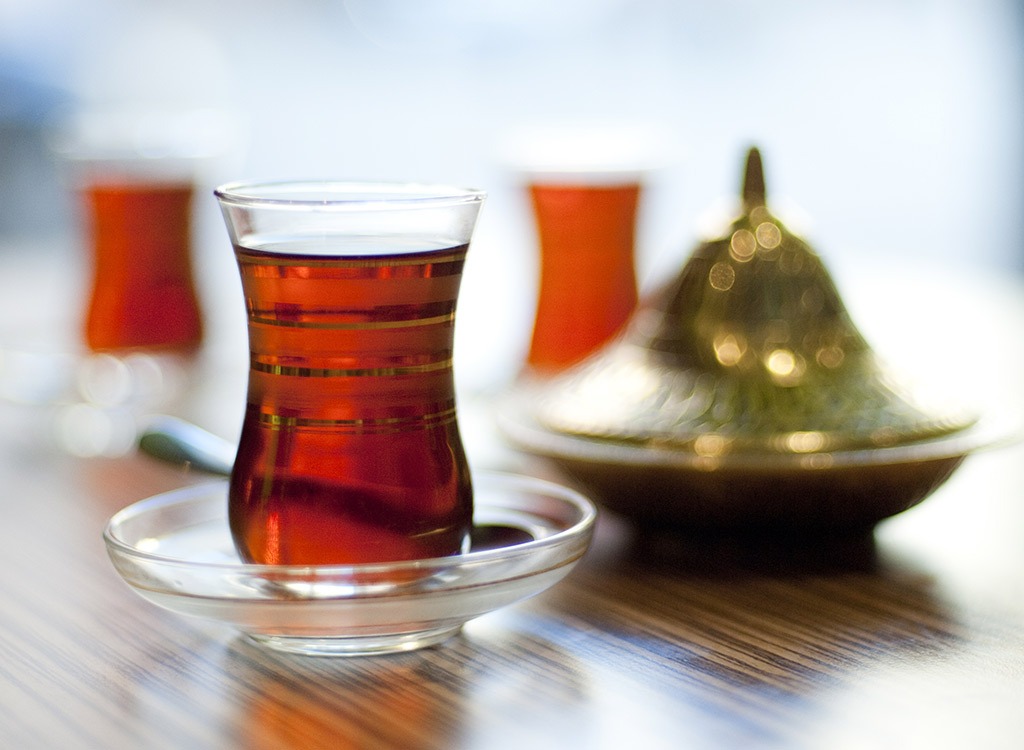
Tea, especially green tea, is packed with polyphenols—a class of antioxidants with immense health benefits. One of those benefits includes anti-breast cancer properties. A small study conducted by the National Institute of Health's (NIH) National Cancer Institute found that Japanese women who drank at least one cup of green tea daily had less urinary estrogen—a known carcinogen of the breast—than non tea-drinkers. To reap the benefits, be sure to brew. According to research presented at a meeting of the American Chemical Society, you'd have to drink as many as 20 bottles of store-bought bottled tea to get the polyphenol-power of a single home-brewed cup!
Broccoli

Crunch on a crucifer to crush cancer. Everything from broccoli to Brussels sprouts can help you beat breast cancer. That's all thanks to these veggies containing an anti-inflammatory compound known as sulforaphane, which has been found to eliminate breast-cancer-causing chemicals and inhibit the growth of human breast cancer cells, according to a 2013 study published in Asian Pacific Journal of Cancer Prevention. To boost your intake of the anti-cancer compound, lightly steaming the veggie is the best way to reap the most bioactive nutrients from your food.
Wild Salmon
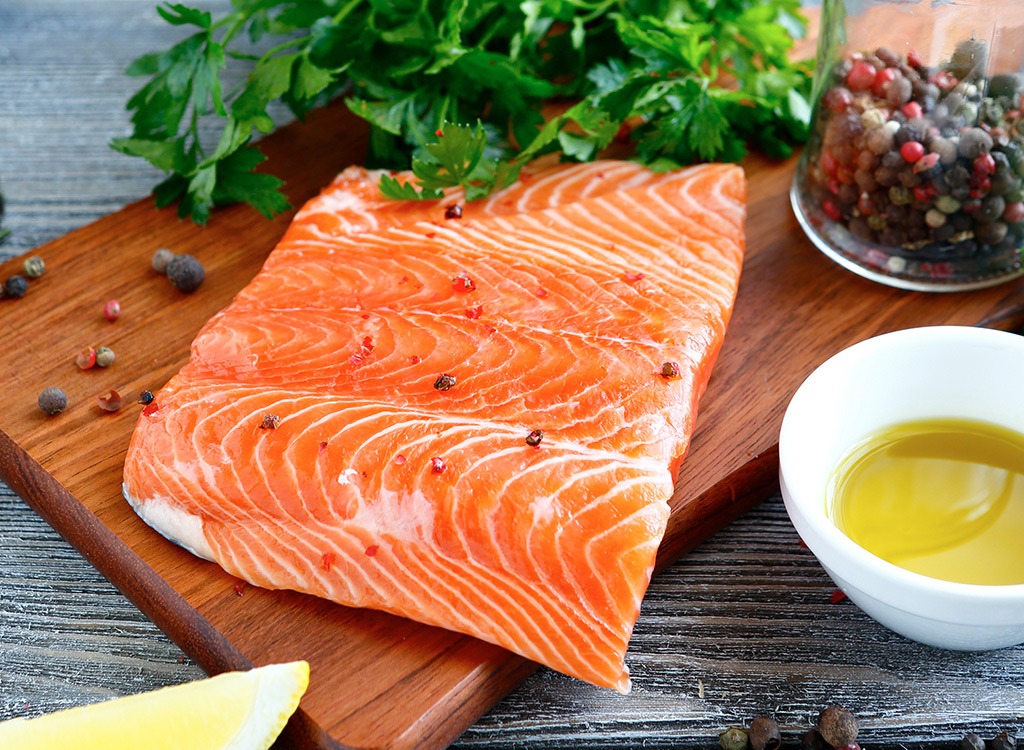
This fatty fish is rich in healthy fats—mainly, omega-3 fatty acids. These essential fats have been linked to improved breast cancer prognosis. A large-scale analysis of international studies published in the journal BMJ found that women who consumed the most fish-based omega-3 fatty acids were 14 percent less likely to have breast cancer, compared to those who ate the least. For overall health benefits, the American Heart Association recommends adding a mere 3.5-ounce serving of wild-caught fatty fish to your diet twice a week. Salmon doesn't even have to be your go-to. Other fish high in omega-3s include cod, mackerel, and anchovies.
Vitamin-D-Fortified Organic Milk
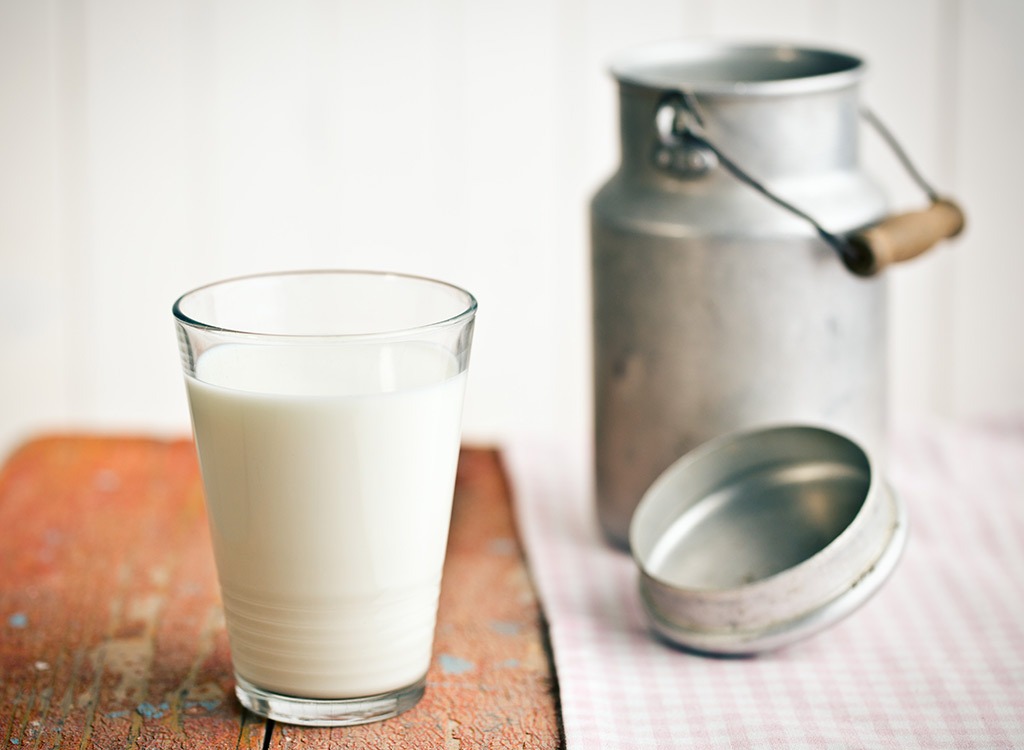
Milk alternatives might be all the rave right now, but unless they're vitamin-D-fortified, we say forget 'em. In addition to helping your body absorb calcium, University of California San Diego researchers found that vitamin D can also ward off breast, colon, and ovarian cancers. The study, published in Cancer Prevention Research found that an adequate vitamin D intake could reduce breast cancer risk in women by up to 50 percent. A few of our favorite ways to use the dairy product is adding a splash to your morning coffee, mixing it into oatmeal, or using it to whip up a post-pump smoothie. Check out these 56 Best Smoothie Recipes For Weight Loss for inspiration!
Olive Oil
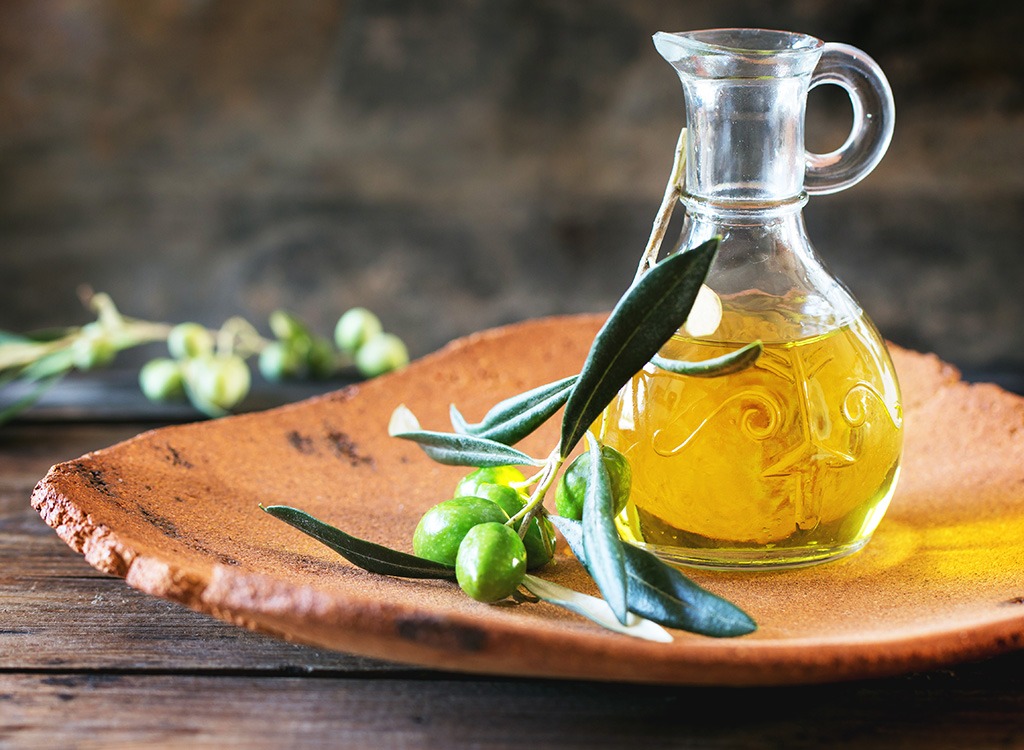
Bonus points for the Mediterranean diet! When Spanish researchers had women supplement their Mediterranean diets with extra-virgin olive oil, the researchers found that these women had a 68 percent lower risk of developing breast cancer compared to women whose dietary fats came from corn oil. The study, published in JAMA Internal Medicine, speculated that the olive oil's anti-inflammatory phenolic compounds and oleic acid may have quelled the growth of malignant cells.
Peaches
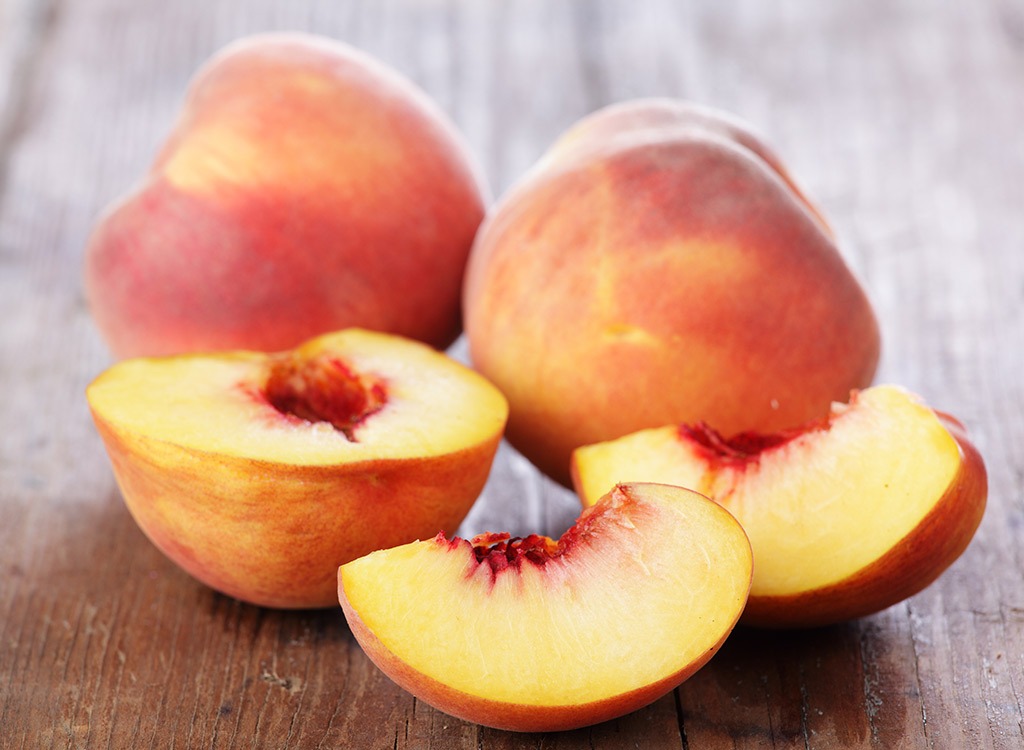
They're one of our favorite Greek yogurt toppers: antioxidant-rich peaches. In 2014, researchers at Texas A&M found that the precise mixture of phenolic compounds present in a peach extract was able to inhibit the metastasis—or spread—of breast cancer cells in mice. Although the research was done in an animal model, the researchers say that the dosage equivalent in humans would be equivalent to consuming two to three peaches per day.
Eggs
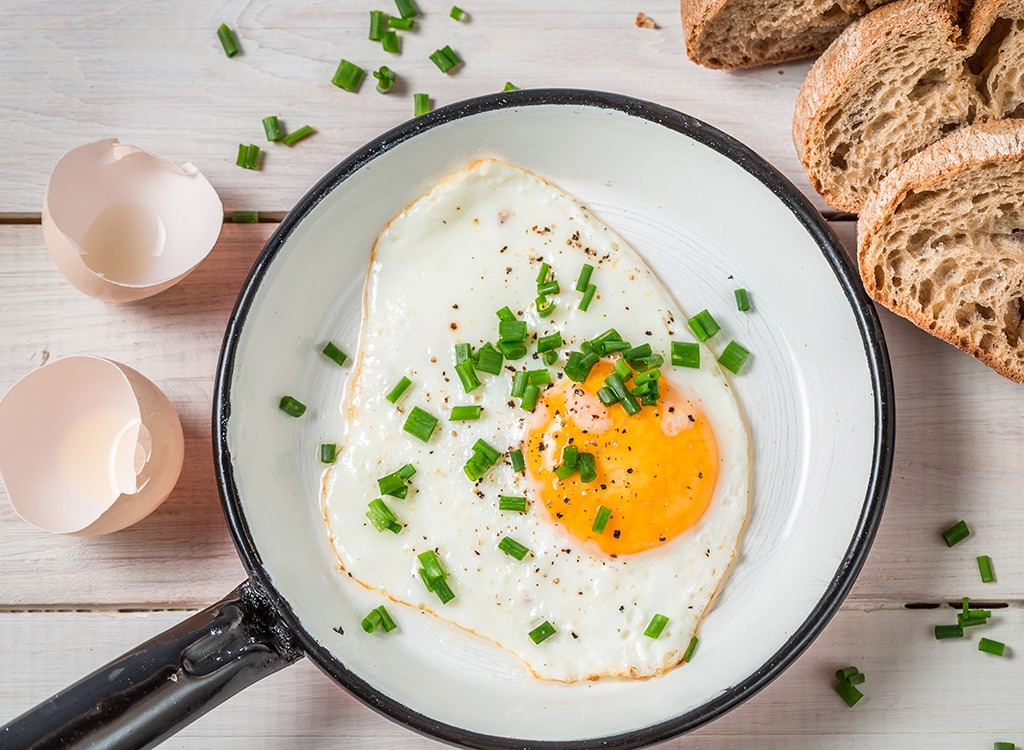
Eggs are one of the most potent sources of an essential—and hard-to-get—nutrient known as choline. This neurotransmitter building block is necessary for the structure and function of all cells, and a deficiency in this compound has been linked to neurological disorders and decreased cognitive function. Not only does it act as brain food, but it may also help lower your risk of breast cancer! According to The Journal of the Federation of American Societies for Experimental Biology, women who consumed the highest amount of choline had the lowest risk of breast cancer compared with those who consumed the least.
Coffee
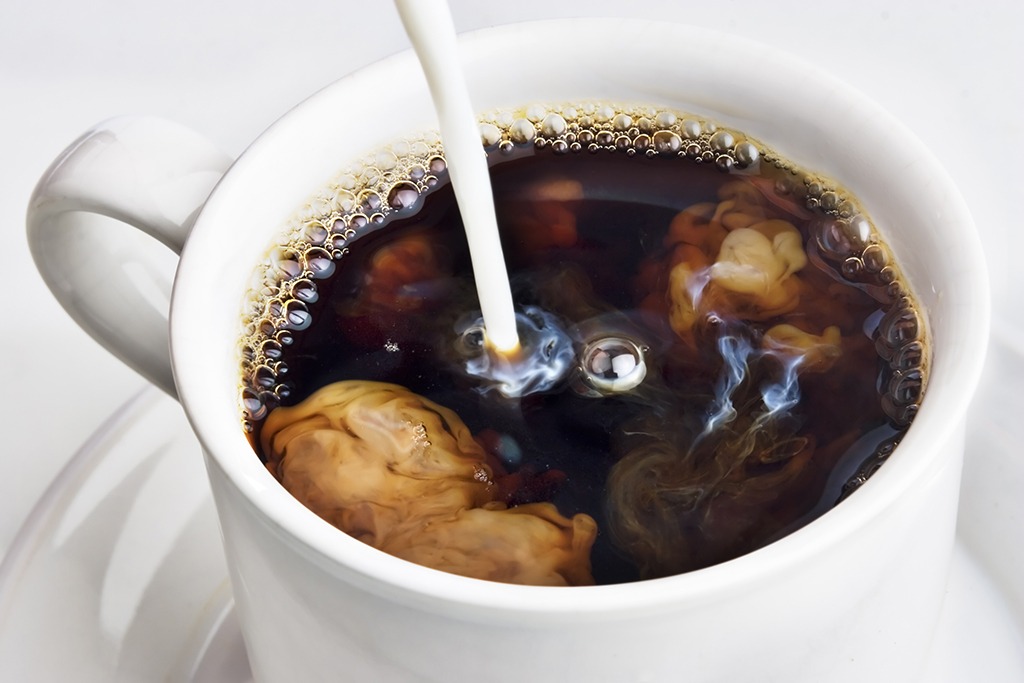
Coffee drinkers won't just get an energy jolt with every cuppa, they may actually help lower their risk of antiestrogen-resistant estrogen-receptor (ER)-negative breast cancer. A 2011 study in Breast Cancer Research found that coffee drinkers had a lower incidence of ER-negative breast cancer than women who rarely drank the morning joe. According to one of the study authors, Jingmei Li, Ph.D., "One possibility is that coffee's antioxidants protect cells from damage that can lead to cancer."
Turmeric
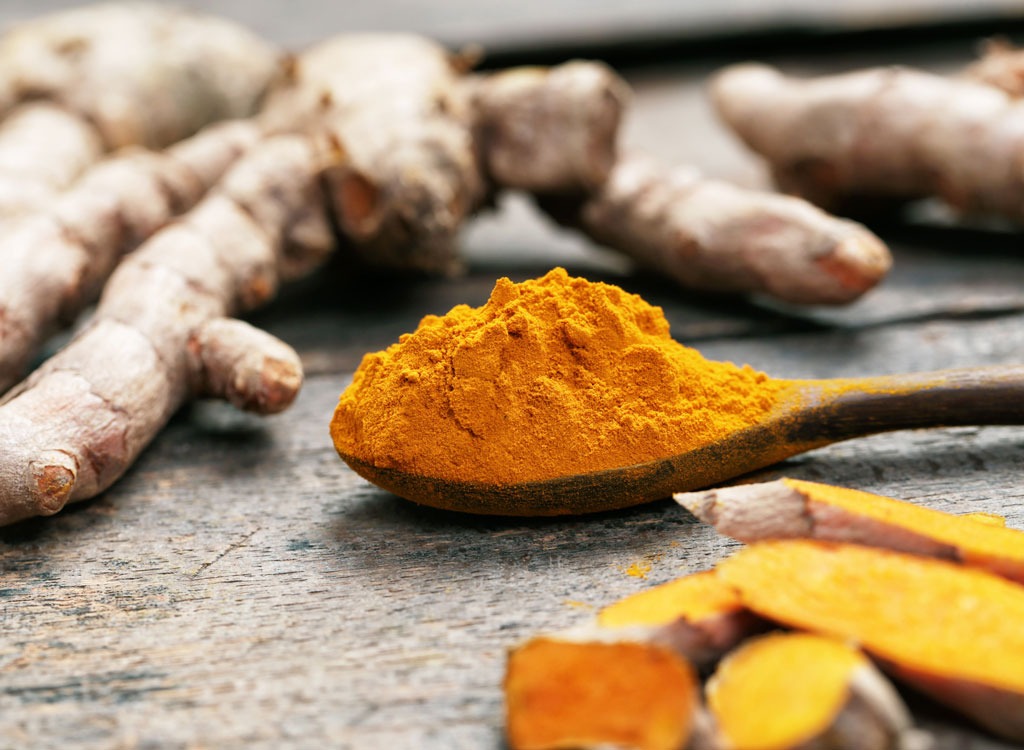
Ask any doctor and they'll tell you: the easiest way to reduce the mortality of cancer is by preventing yourself from getting cancer in the first place. And that can be accomplished by eating turmeric. This root-derived spice contains the compound curcumin, an antioxidant polyphenol with chemopreventive properties. Because chronic inflammation is a major risk factor for the development and metastatic progression of cancer, curcumin's anti-inflammatory properties play a major role in diminishing the formation of breast cancer, according to a study in Molecular Oncology.
Leafy Greens
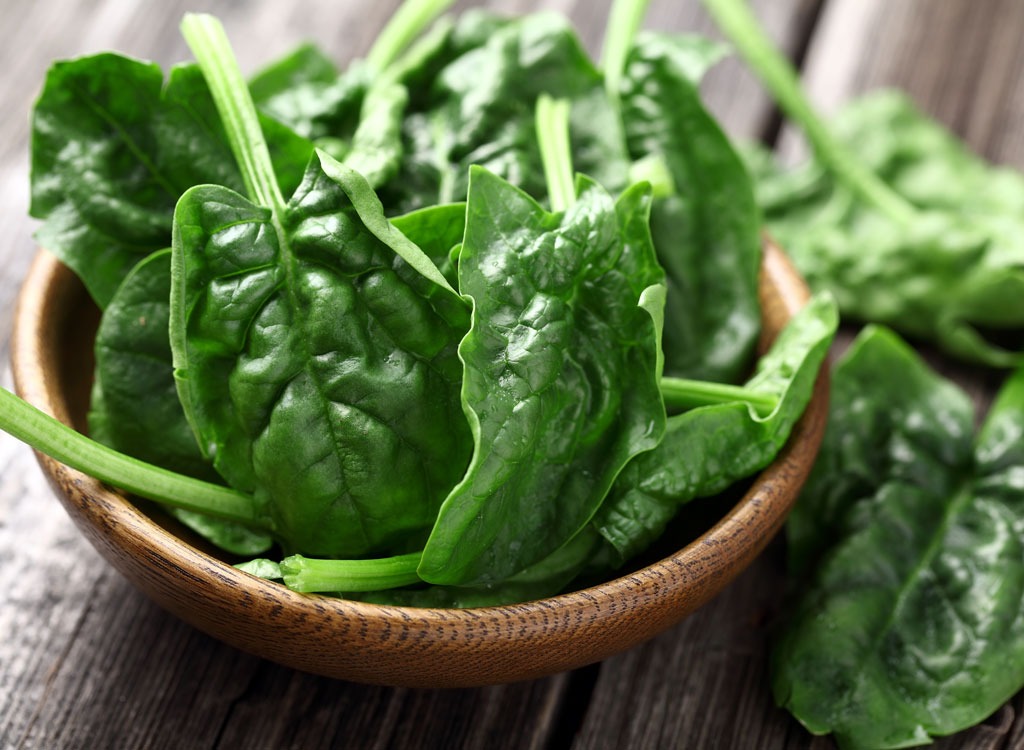
Leafy greens, like spinach, pack a one-two punch when it comes to fighting breast cancer. For starters, they're a top source of the dynamic carotenoid duo, lutein, and zeaxanthin, of which high levels have been connected to a 16 percent reduced rate of breast cancer. And secondly, they're a primo source of folate, a B vitamin that strengthens your DNA and is crucial in lowering risk of neural tube defects during pregnancy. Low levels of folate have most recently been linked to increased breast cancer risk in a study published in the journal PLoS ONE. To reap the rewards, grab some spinach, kale, or asparagus.
Soy
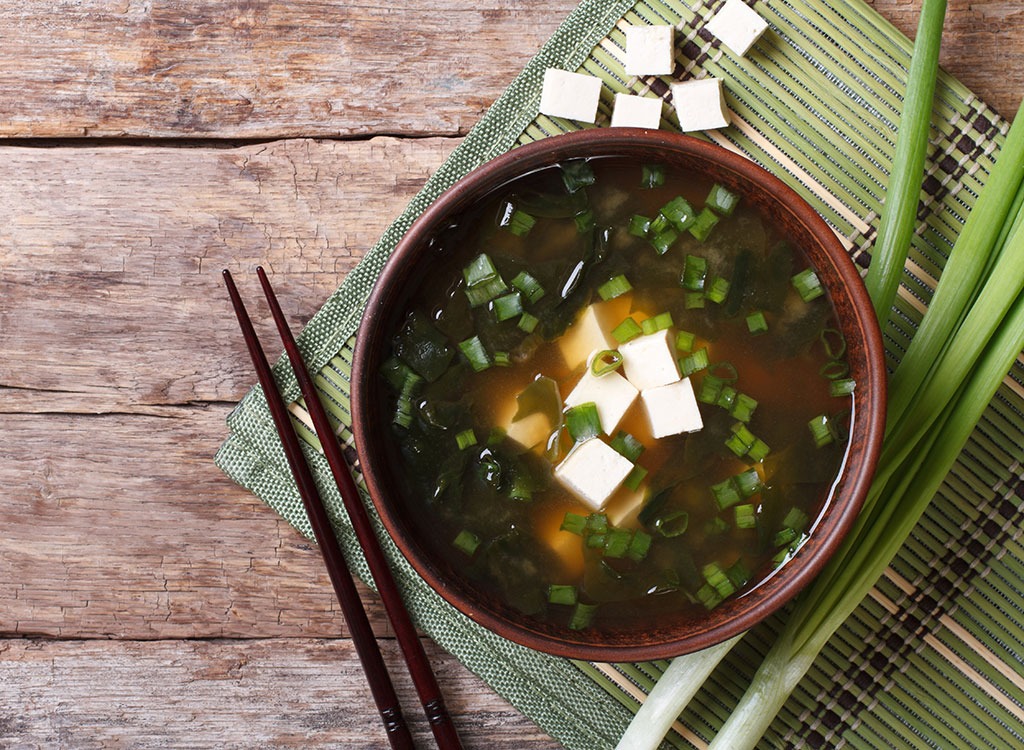
We're debunking the long-standing food myth that soy foods cause breast cancer. It stemmed from the fact that soy contains phytoestrogens, naturally occurring hormone-like compounds with weak estrogenic effects. Under lab settings, these compounds sometimes fuel cancers; however, human studies have not proved high-soy diets increase breast cancer risk. In fact, it's quite the opposite, and experts speculate it has to do with the fact that soy isoflavones can actually block more potent natural estrogens in the blood.
A longitudinal study in The American Journal of Clinical Nutrition that followed nearly 10,000 breast cancer survivors found that women who ate the most soy had 15 percent lower rate of cancer recurrence and 15 percent decrease in mortality. The American Cancer Society's dietary guidelines note that consumption of soy foods is not only safe but "may even lower breast cancer risk." Other studies in the Journal of Clinical Oncology and American Journal of Epidemiology have also shown that increased soy consumption correlates to improved survival rates and decreased risk of lung cancer as well as a reduced risk of prostate cancer for men. Reap the benefits with fermented foods: miso paste, tempeh, natto, soy sauces, and fermented tofu.
Foods That May Increase Your Risk of Breast Cancer

Remember that saying, "What doesn't kill you makes you stronger?" That doesn't actually apply when it comes to cancer-causing agents. The following types of foods have been linked to increasing your risk of breast cancer, so try to keep consumption of them low.
Canned Food
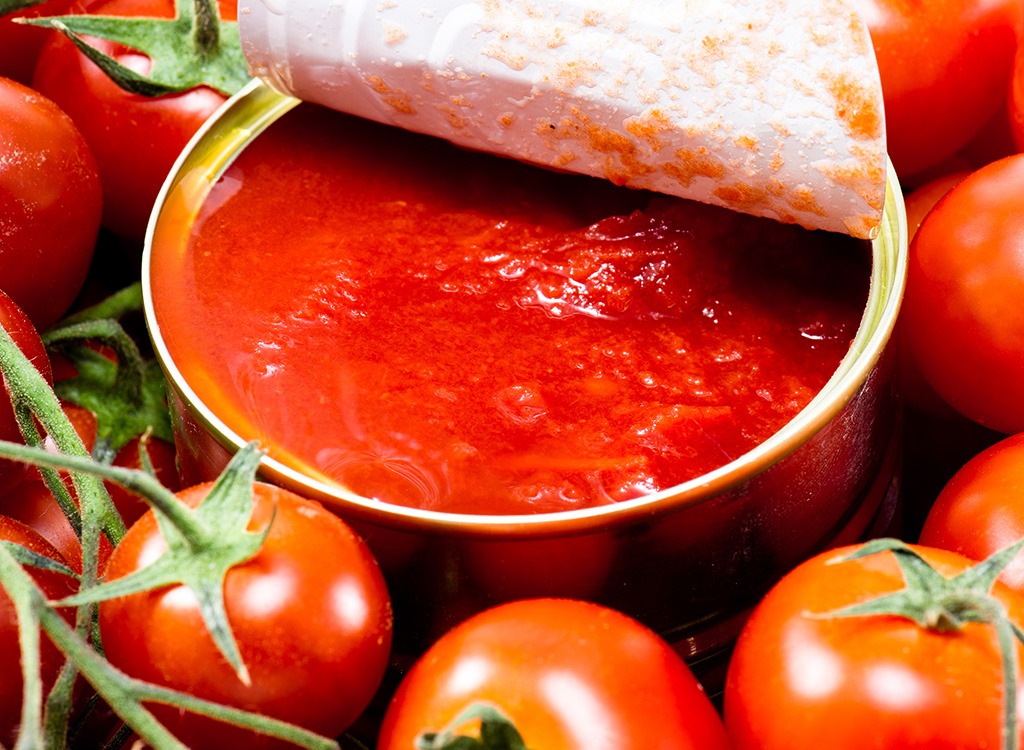
The can lining, bisphenol-A, (BPA), has been linked to breast cancer. Because BPA is a synthetic estrogen, meaning it mimics your hormones, it can disrupt your hormone system. In fact, a 2012 report published in Environmental Health Perspectives suggested that BPA was able to promote human breast cancer cell growth in a lab. What's more, there is ample evidence in animal models to conclude that BPA increases the risk of cancer in humans. "If we take the results in animal models together, I think we have enough evidence to conclude that BPA increases the risk of breast and prostate cancer in humans," Dr. Soto, a biologist at Tufts University School of Medicine who published a review in Nature Reviews Endocrinology evaluating 30 years' worth of research on whether endocrine disruptors increase the risk of developing breast and prostate cancer, concludes in a Medscape report.
Excess Alcohol

Although a low to moderate amount of alcohol has some health benefits, overindulgence not only can increase your risk of heart failure and stroke, but it can also increase your risk of cancer. A 2015 International Journal of Cancer study involving over 300,000 women found that a woman's average risk of being diagnosed with breast cancer increases by 4 percent with each additional drink a day. The study also found that the longer a woman drank over the course of her life, the greater her risk of breast cancer—especially if she started drinking before her first pregnancy. Study co-author Maria-Dolores Chirlaque, MD, MPH, reminded women in a news release that this is a modifiable risk factor, "Alcohol intake is a breast cancer risk factor that can be changed by a personal decision to form healthy habits," Chirlaque said. So, "women must be advised and forewarned of the possibility they have to control this factor." So try to stick to one glass of wine per day.
Saturated Fats
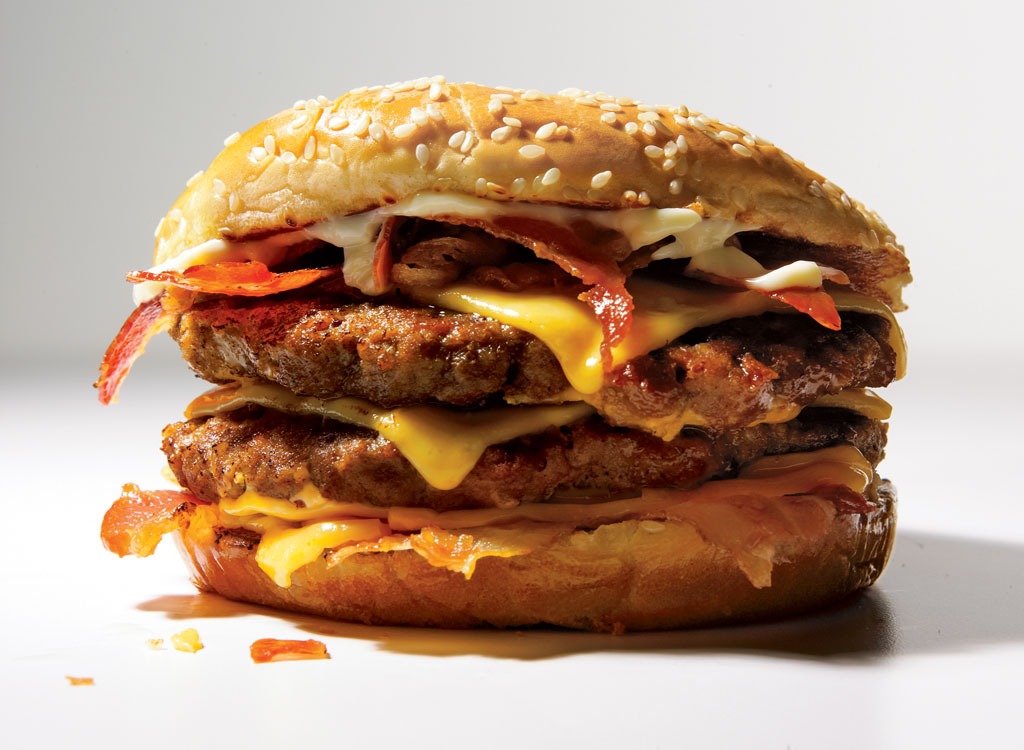
Saturated fats may have been cleared of their connection with heart disease, but that doesn't mean they have been absolved of all of their sins. A 2015 meta-analysis of 52 studies published in the journal Medicine reported that postmenopausal women with the highest saturated fat intake increased their risk of breast cancer by over 30 percent compared to those who ate the least. As you get older, try to decrease your consumption of foods high in saturated fats, such as highly-processed snacks made with vegetable oils, fatty meats, processed cheeses, and butter-based desserts.
Charred Meat
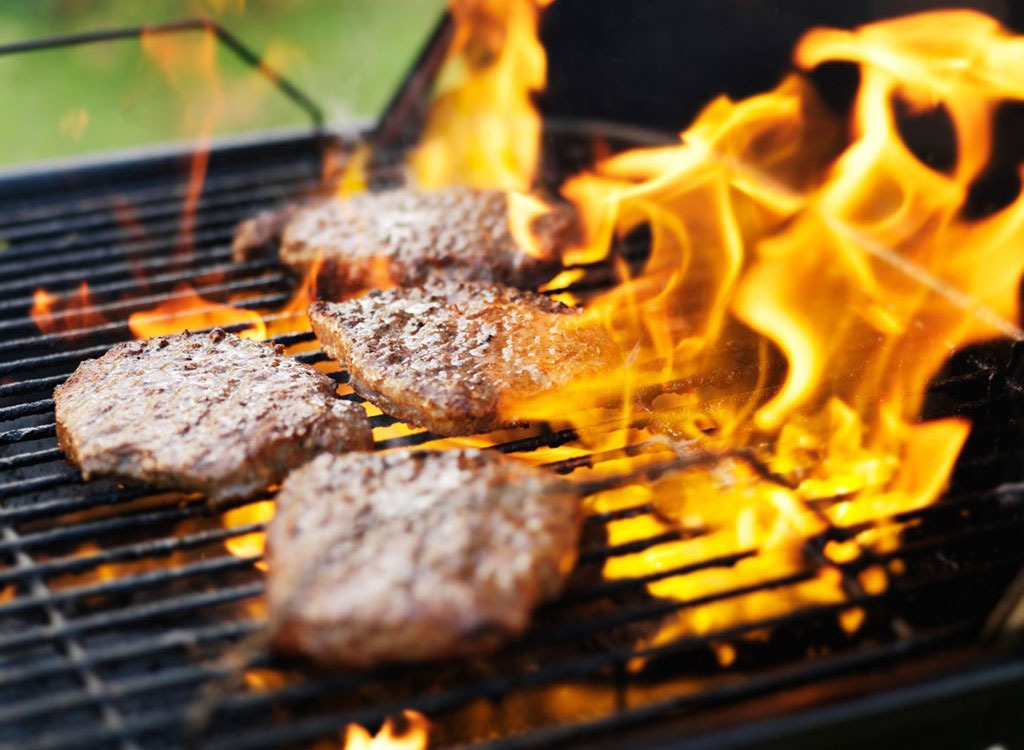
When you cook, broil, or grill food—particularly meats and fish—at high temperatures for a long period of time, the cooking process can convert the food's proteins into carcinogenic compounds known as heterocyclic amines (HCA). One study, published in the Journal of the National Cancer Institute found that women who ate well-done meat had a risk 4.62 times higher than women who ate the same amount of meat cooked rare or medium.

